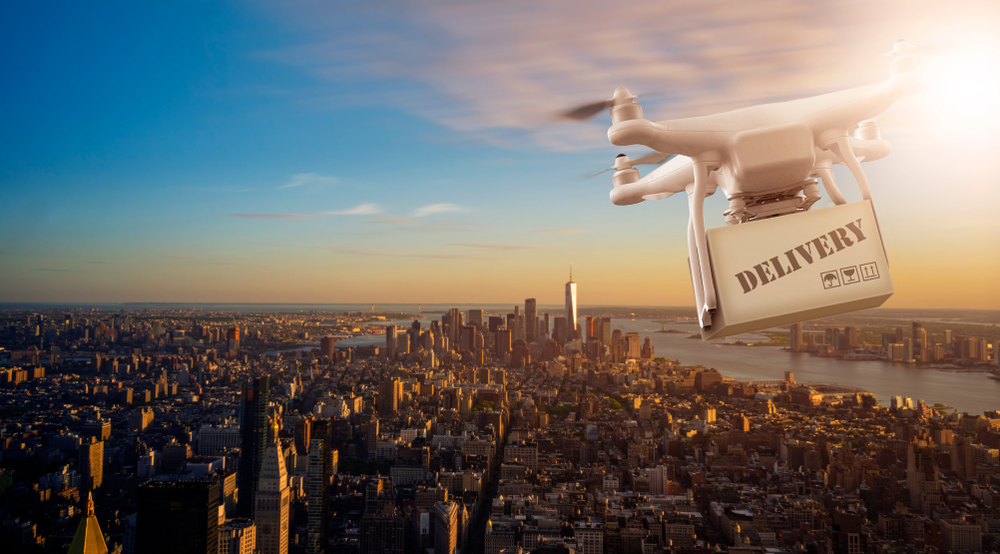Amidst the many changing consumer habits over the past several years, the expansion of e-commerce has pushed many retailers to look for ways to adapt to the growing demand. To keep up with the influx of orders and ensure speedy delivery times for their customers — regardless of their proximity to distribution centers — retailers are looking for ways to streamline their last-mile logistics. A potential channel on the horizon is drone package delivery, which some major retailers, such as Amazon and Walmart, have already started testing to deliver packages to consumers safely and efficiently.
Drone package delivery involves the deployment of a specially designed drone, which flies to designated delivery locations and physically drops a package at a consumer’s address. The drones can either operate autonomously using AI technology or be piloted by an operator who oversees the flight. As the technology continues to be tested, retailers may see key benefits by using drone package delivery in their last-mile logistics strategies:
- Lower delivery costs
- Higher operational efficiencies
- Faster delivery times
- Increased access to more remote delivery areas
- Decreased risk of loss or theft in transit
- Lower risk of roadway-related disruptions that can delay delivery
At the peak of the pandemic, Walmart partnered with DroneUp, a drone services provider, to trial drone deliveries of at-home COVID-19 testing kits. After realizing the partnership allowed them to deliver products to their customers in record time, Walmart recently announced that they will be expanding their drone delivery network by the end the year, which will allow them to potentially provide 4 million U.S. households with drone delivery services.

Similarly, Amazon recently announced that later this year they will be rolling out their Prime Air delivery service, which will allow customers in select locations to receive drone deliveries to their backyards.
However, like any new technology, drone package delivery comes with limitations that will take time and effort to iron out:
- Carrying capability constraints
- Consumer privacy concerns in drone-serviced areas
- Concerns about whether drones can be hacked or intercepted
- Weather conditions that could impede deliveries
- Coordination with local airports and other facilities using the airspace
While the particulars continue to be worked out through trial and error, some retailers are still considering drone package delivery as a practical way to meet growing consumer demand and modernize their supply chains. Drones are among the many technologies that are helping to streamline supply chains. iGPS plastic pallets can also assist in streamlining shipping processes. They incorporate smart features that make them traceable throughout a supply chain, allowing companies to capture data at any point of distribution, ensuring better planning and efficiency, and helping to lower a company’s Total Cost of Business (TCOB).
The future of drone package delivery may potentially be bright. If planned and rolled out correctly, retailers can streamline their last-mile logistics and increase customer satisfaction. Many consumers may even enjoy the novelty and convenience of receiving a package by drone.
Companies committed to streamlining their supply chains use iGPS plastic pallets for all their shipping needs. Our lightweight, recyclable plastic pallets can help reduce harmful emissions and lower your Total Cost of Business. For more information, contact us at 1-866-557-0047, email a specialist at switch@igps.net, or visit our contact page.



